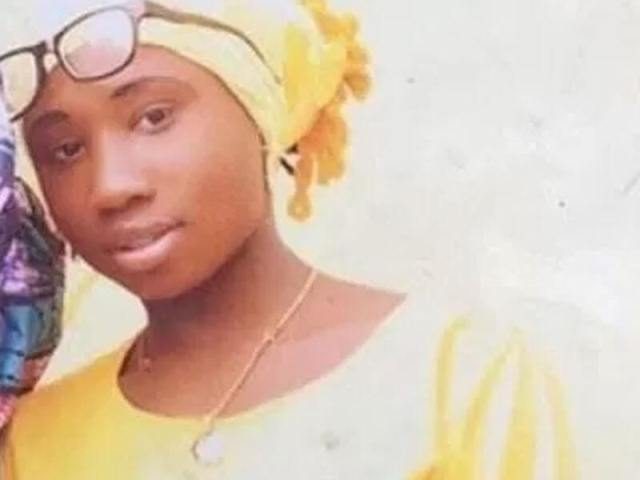An independent journalist revealed a video released by Boko Haram this weekend in which one of its many captives claims that Leah Sharibu, a Nigerian Christian teen abducted in early 2018 is alive, contradicting earlier reports.
Sharibu is the last of 110 girls the group abducted from the town of Dapchi, northeastern Yobe state, in early 2018 to remain in captivity. Boko Haram jihadists have refused to release her because she has not accepted forced conversion to Islam and “marriage” to one of the terrorists.
Boko Haram is a Nigeria-based jihadist group affiliated with the Islamic State. Its leaders have taken an oath of allegiance to the Islamic State and officially renamed the group Islamic State West Africa Province (ISWAP). Nigerian officials have repeatedly claimed that a splinter group of jihadists who rejected the Islamic State’s authority currently operate separately and often use this to claim that Boko Haram no longer exists.
Journalist Ahmad Salkida published a snippet of a video featuring captives he identified as being under ISWAP control on Twitter Saturday and explained on his website that the terrorist group released the video less than a day after the publication Friday of a gruesome film showing the execution of four humanitarian aid workers the group abducted in July. The exact date of their murders remains unknown.
EXCLUSIVE: TWO LECTURERS, OTHERS SPEAK FROM ISWAP CAPTIVITY. | Ahmad Salkidahttps://t.co/VN0NTBo9PM pic.twitter.com/3AGrRSSfi3
— Ahmad Salkida (@A_Salkida) December 14, 2019
A man Salkida identifies as “Bitrus Zakka Bwala, a principal lecturer with the College of Education, Gashua in Yobe state,” speaks before the camera, sitting alongside several men and one woman. Salkida counts 13 captives and notes that the terrorists graphically covered the woman’s face, who appears to be wearing a hijab. The captives do not make any indication that the woman is Sharibu, though Sharibu is the only woman mentioned by name. Instead, Boko Haram terrorists allege the woman was abducted near Maiduguri, the capital of Borno state, where Boko Haram was born.
“I appeal to the Federal Government, as you can see here (there are various Christians among those) abducted at various points,” the man identified as Zakka says. “When we came, we saw some workers here, particularly the ones with the Action Against Hunger, before they were executed. We saw that government has not done enough and that is why Leah Sharibu is still here.”
“We, therefore, appeal in particular to President Muhammadu Buhari to do whatever is within his reach to rescue us. We equally appeal to our various governors to come to our aid and rescue us,” the man says. “The leadership of Christian organizations, we appeal to you to liaise with the Federal government and push for the rescue of all captives here.”
Action Against Hunger is a humanitarian aid organization operating in the region. The group lost four of its members to Boko Haram execution in the video published before the most recent tape. Nigerian President Buhari confirmed that the executions had occurred and that they were a product of what Nigerian media described as “a breakdown of negotiations with the government.”
“Evil will always be defeated by good at the end of the day. Whatever seeming victory evil records, eventually rebounds on the evildoer,” Buhari said last week in response to the killings. “We are resolved to beat evil in this land, and we remain unrelenting till we achieve it.”
Salkida did not publish the entirety of the extended video in which Zakka claims Sharibu is alive, but he states that the captive men identify themselves in front of the camera and the group appears to be a mix of Muslims and Christians, though mostly Christian.
Boko Haram roughly translates from the native Hausa language to “Western education is sin.” The group for years focused on killing, raping, and abducting girls and women from schools to prevent the nation’s women from having an education. They rose to international prominence in 2014 after abducting over 300 girls from Chibok, Borno state, a village near Maiduguri. Some of the Chibok girls remain unaccounted for five years later.
The Dapchi mass abduction that took Leah Sharibu in February 2018 was similar to that of Chibok, albeit smaller in number. The terrorists who captured her negotiated for the release of the other 109 girls, but refused to hand over Sharibu, claiming that they could not because she had not yet renounced Christianity.
Sharibu appeared in a hostage audio clip in August 2018, which her father confirmed sounded like her voice.
“I am Leah Sharibu, the girl that was abducted in GGSS Dapchi. I am calling on the government and people of goodwill to intervene to get me out of my current situation,” the voice said. “I also plead to the members of the public to help my mother, my father, my younger brother and relatives. Kindly help me out of my predicament. I am begging you to treat me with compassion, I am calling on the government, particularly, the President to pity me and get me out of this serious situation.”
Little information surfaced on Sharibu until nearly a year later, when an Action Against Hunger aid worker claimed the terrorists had killed her in July.

COMMENTS
Please let us know if you're having issues with commenting.